Shinehead is a British Jamaican reggae singer/toaster/rapper.
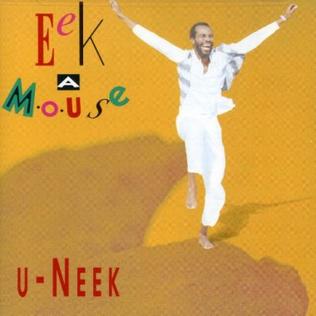
U-Neek is an album by the Jamaican reggae artist Eek-A-Mouse, released in 1991. He supported the album with a North American tour. "You're the Only One I Need" was released as a single.

Rhythm Killers is an album by Jamaican musical duo Sly and Robbie, released in May 1987 by Island Records. By the time of the album's recording, Sly and Robbie had transitioned away from their prolific work in the reggae genre. They spent the 1980s experimenting with electronic sounds and contemporary recording technology on international, cross-genre endeavors, which influenced their direction for Rhythm Killers.
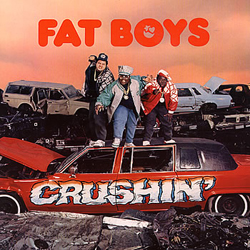
Crushin' is the fourth studio album by the hip hop group the Fat Boys, released in 1987. It was their breakout album, charting in the top 10 on both Billboard Pop and R&B album charts and selling more than a million copies by the end of the year. It includes a cover version of the Surfaris' hit "Wipe Out" with the Beach Boys singing back-up vocals. The cover made it to No. 12 on the Billboard chart, and No. 10 on the corresponding R&B listing. The album peaked at No. 49 on the UK Albums Chart.
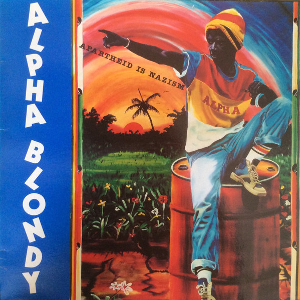
Apartheid Is Nazism is an album by the Ivorian musician Alpha Blondy. The title track was a hit; the album, as an import, was a success in the United States prior to its Shanachie release. Blondy supported the album with a North American tour.

Coming Back Hard Again is an album by the American hip hop trio the Fat Boys, released in 1988.
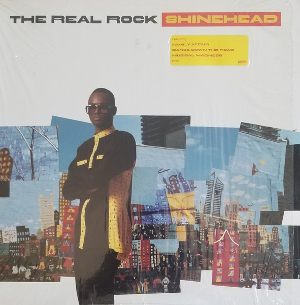
The Real Rock is a studio album by the reggae/rap musician Shinehead, released in 1990 via Elektra Records.

Silent Assassin is an album by the Jamaican musicians Sly and Robbie, released in 1989 via Island Records.

Tings an' Times is an album by the Jamaican dub poet Linton Kwesi Johnson, released in 1991. It was Johnson's first album in six years. Tings an' Times also served as the title of a book of Johnson's poetry.

Toots in Memphis is an album by the Jamaican musician Toots Hibbert. Released in 1988, Toots in Memphis was recorded without the Maytals. The majority of the album's tracks are covers of American R&B songs.
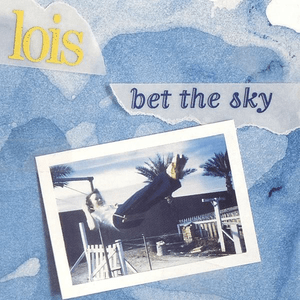
Bet the Sky is an album by the American band Lois, released in 1995. "Shy Town" was released as a single.

Green Suede Shoes is an album by the American band Black 47, released in 1996. It was a commercial disappointment.

Too Wicked is an album by the British band Aswad, released in 1990.

Hanging Fire is an album by the Jamaican reggae musician Jimmy Cliff, released in 1988. It was a commercial disappointment.
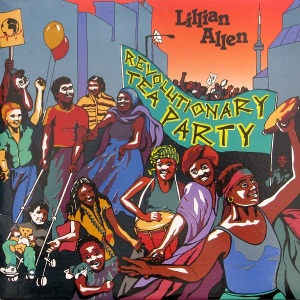
Revolutionary Tea Party is an album by the Canadian musician Lillian Allen, released in 1986. It won a Juno Award, in the Best Reggae/Calypso Recording category at the Juno Awards of 1986. The album sold around 5,000 copies in its first year of release. Allen subsequently named her band the Revolutionary Tea Party Band.

Human Soul is an album by the English musician Graham Parker.

Sidewalk University is an album by the musician Shinehead. It was released in 1992 via Elektra Records. Shinehead supported the album with the "Sidewalk University Tour", which included Worl-A-Girl among its supporting acts. He also participated in Reggae Sunsplash 1993, his third time and his first as the headliner.

Touch and Go is the third album by the American vocal group Force M.D.'s, released in 1987. "Love Is a House" was the first single; "Couldn't Care Less" was also released. The group supported the album by playing shows with Madonna and Alexander O'Neal.

Tales of the New West is the debut album by the American band the Beat Farmers, released in 1985. The band signed a one-album deal with Rhino Records. The album peaked at No. 186 on the Billboard 200. It had sold more than 40,000 copies by the end of 1985. An expanded edition of Tales of the New West was reissued in 2004.

So Good It Hurts is an album by the British band the Mekons, released in 1988. "Ghosts of American Astronauts" was released as a single. The band supported the album with a North American tour, as well as shows in England.



















